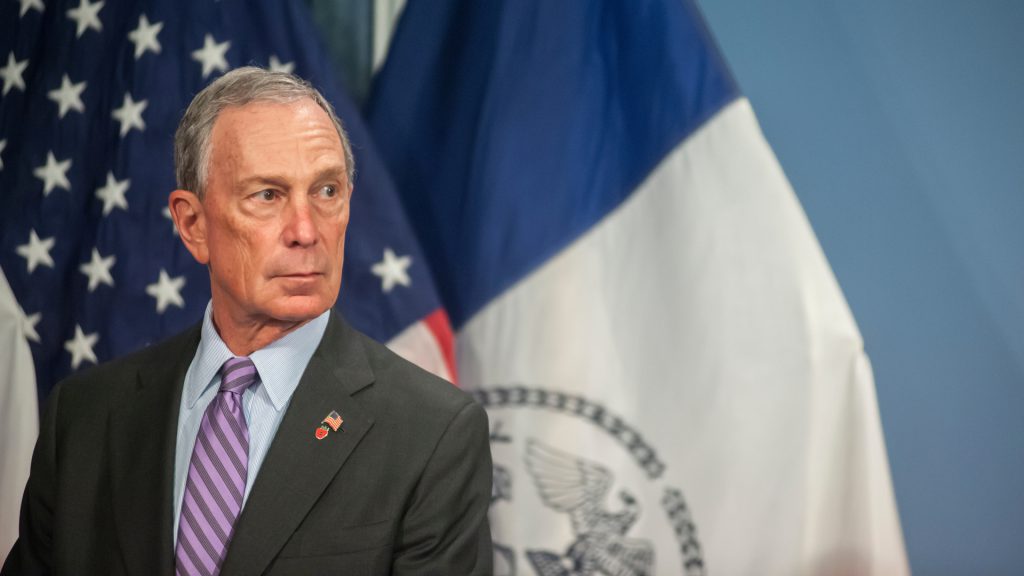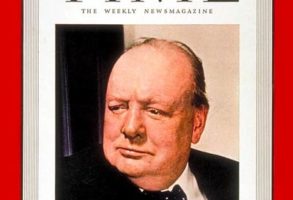
Published November 13, 2019
Bill de Blasio, New York’s left-wing mayor, has suspended his presidential campaign. Michael Bloomberg, the billionaire ex-mayor, is thinking of plunging into the presidential race, on the calculation that none of the present Democratic candidates seem sufficiently “well positioned” to defeat President Trump. And Mr. Trump—a New Yorker if ever there was one—has filed paperwork to change his legal residence from the Trump Tower on Fifth Avenue to Mar-a-Lago, his Xanadu in Palm Beach, Fla.
New York has a multiple personality. Messrs. Bloomberg, de Blasio and Trump represent three faces of the city, each of them distinct and vivid and typical. Each stands for a certain framework of ideas and ambitions and methods; each is differently tuned to the American themes of success and failure—which are, after all, New York’s themes, the raw binary possibilities that greet the newcomer.
It’s up to you, New York, New York!
Mr. de Blasio was born Warren Wilhelm Jr. at Doctors Hospital on the Upper East Side of Manhattan, across the street from the mayor’s residence, Gracie Mansion. The story of his passage from Warren Wilhelm Jr. to Bill de Blasio had crosscurrents of failure. There’s a broken heart for every light on Broadway.
His father, an economist named Warren Wilhelm Sr., fought on Okinawa and lost a leg below the knee to a Japanese grenade. He came home and married Maria de Blasio and they had three sons. The couple’s political views were far to the left (a Loyalty Board in the McCarthy era regretted their “sympathetic interest in Communism”). Eventually Warren Wilhelm Sr. withdrew into a fatal alcoholism. He and Maria were divorced. After he contracted inoperable lung cancer, Wilhelm Sr. committed suicide. His son Bill legally changed his surname to his mother’s and vowed not to imitate his father in any way.
Except, perhaps, in politics. Mr. de Blasio—who supported Nicaragua’s Sandinistas, honeymooned in Cuba during the U.S. embargo, and calls himself a social democrat—entered city hall in 2014 and has been, almost everyone agrees, a fairly leftist—and fairly lousy—mayor.
His predecessor, Boston native Mr. Bloomberg, was a success—thorough, thoughtful, imaginative, though with a troubling tendency to overcontrol. Messrs. Bloomberg and de Blasio share a coercive-activist streak—Mr. de Blasio as a left-wing leveler (opponent of charter schools and other avenues of merit and excellence) and Mr. Bloomberg as a nanny-state enforcer (who sought to outlaw large cups of soda). Each man’s micromanaging tendency has a different flair. Stop-and-frisk is the Bloomberg style. Mr. de Blasio has a dogmatic instinct to subvert whatever in the city is distinguished.
With the self-confidence of his $57 billion, Mr. Bloomberg sets himself up as a supercompetent if overbearing manager of mores and behavior. He falls in with the progressive orthodoxy on abortion, gun control, climate change, same-sex marriage and immigration. He has been a Democrat, a Republican, an independent and now a Democrat again—which makes him, if anything, nonpartisan and therefore, theoretically, well-positioned to begin uniting the divided country.
Except that I doubt it would work that way. You may discern the reason in studying the difference between Mr. de Blasio and Mr. Bloomberg, on the one hand, and Mr. Trump on the other. Messrs. de Blasio and Bloomberg both represent principles of minute government control—Mr. de Blasio along somewhat socialist lines, Mr. Bloomberg along corporatist lines, but with strong authoritarian social instincts.
Mr. Trump favors forms of anarchy over government coercion. He may admire certain dictators abroad and advocate a border wall, but at bottom he is a natural subversive—which makes him a pretty strange president. He even routinely subverts himself, as if to validate the principle. He’d rather lie than accept the confinement of an unwelcome truth. He is reminiscent of the sort of New York operator whose assumption, going in, is that the law and the mob are coequal branches. That’s not always wrong.
Mr. Trump’s ego-driven, warlord presidency—for all its disorder, faults, bad manners and stupidities—comes out on the side of Huckleberry Finn’s kind of freedom: freedom from political correctness and its horrors, anyway, and from the essentially totalitarian mind that lurks behind it. Mr. Trump’s rebellion against such coercion is the secret of his appeal.
Can Mr. Bloomberg get the Democratic nomination? We’ll see. It is surpassingly weird that the American voter might be offered a choice between two septuagenarian billionaire New Yorkers—one a nanny and the other a juvenile delinquent.
Mr. Morrow is the Henry Grunwald Senior Fellow at the Ethics and Public Policy Center.








